Search Results
Showing results 141 to 160 of 191
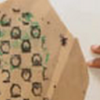
Print Hints
Source Institutions
In this physical sciences activity, learners explore how forensic investigators collect prints from a crime scene. Learners make hand impressions in damp sand and analyze the patterns they observe.
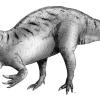
Sing - Suchomimus Was His Name
Source Institutions
In this activity (located on page 2 of PDF), learners sing together a song that gives details about the dinosaur species Suchomimus (pronounced “Sook-o-mime-us”).
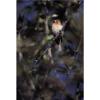
The Beaks of the Finches
Source Institutions
In this simulation, learners become birds different beak types. Learners use various tools to represent beaks to pick up seeds and place them in a petri dish.
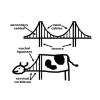
Scientific Measurement Exercise
Source Institutions
Learners measure irregularly shaped bones using a variety of measurement methods and tools. Then, they measure again using standard conventions and metric tape measures.
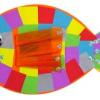
Design-a-Fish
Source Institutions
In this science and language arts activity, learners study fish anatomy and make their very own 3D paper fish.
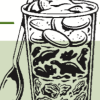
Layered Fossil Parfait: Deeper is Older
Source Institutions
In this activity, learners explore dinosaur fossils by making an edible treat. First, learners read "Dinosaur Bones" by Aliki to examine how fossils are formed.
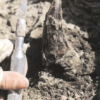
Compare Dinosaur Body Parts
Source Institutions
In this activity, learners explore the size and scale of dinosaurs. Learners listen to "The Littlest Dinosaurs" by Bernard Most to learn about the different sizes of dinosaurs.
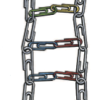
The Ladder of Life
Source Institutions
In this activity, learners identify the DNA base bars guanine, cytosine, thymine and adenine. Learners create a DNA model using colored paper clips to resemble these base pairs.
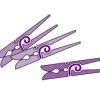
Good Stress
Source Institutions
In this activity about physical stress (page 28 of PDF), learners discover that muscles and bones need to work to stay strong.
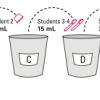
A System of Transport
Source Institutions
In this activity about the human heart (on page 5 of the PDF), learners work in teams to simulate the volume of blood moved through the circulatory system by transferring liquid into--and through--a s
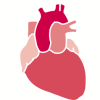
What is Blood Pressure?
Source Institutions
In this activity about heart health (on page 34 of the PDF), learners measure their own blood pressure using an electronic blood pressure monitor with a self-inflating cuff (included in cost of materi
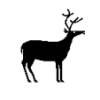
Statistics: Creature Features
Source Institutions
In this math activity, learners collect, organize, and analyze a set of data related to types of animals in the temperate forest.
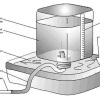
Catch Your Breath: Build a Spirometer and Measure your Lung Capacity
Source Institutions
In this activity, learners will measure their lung capacity by making their own spirometer. Learners will then explore factors that affect the amount of air the lungs can hold.
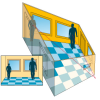
Special Effects: Titanic and Beyond
Source Institutions
In this activity, learners investigate how geometry plays a role in perspective.
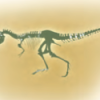
Digging Deeper!
Source Institutions
In this activity, learners explore dinosaur skeletons and anatomy. Learners make observations about a T. rex skeleton diagram and then measure the skeleton length and width.
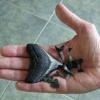
Chomp
Source Institutions
In this activity (page 5 of pdf), learners explore the relationships between the shape and structure of a shark's teeth and the food it eats, and then create their own shark tooth from clay.
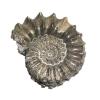
Xenosmilus
Source Institutions
Learners imagine they are paleontologists in Florida, where they find (remove from envelope) paper "fossils" of some unknown creature, only a few at a time.
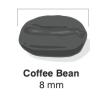
Coffee to Carbon
Source Institutions
In this activity, learners place cards featuring biological structures in order by their relative size from largest to smallest.
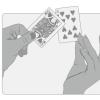
Dealing Signals
Source Institutions
In this activity, use standard playing cards to introduce learners to cellular interactions such as cell to cell recognition and signal and receptor specificity.
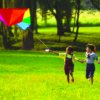
How Active Are You?
Source Institutions
In this activity, learners explore what is and is not active play and how it contributes to a healthy body and mind. Making active play a routine part of every day is a key concept of the experience.
